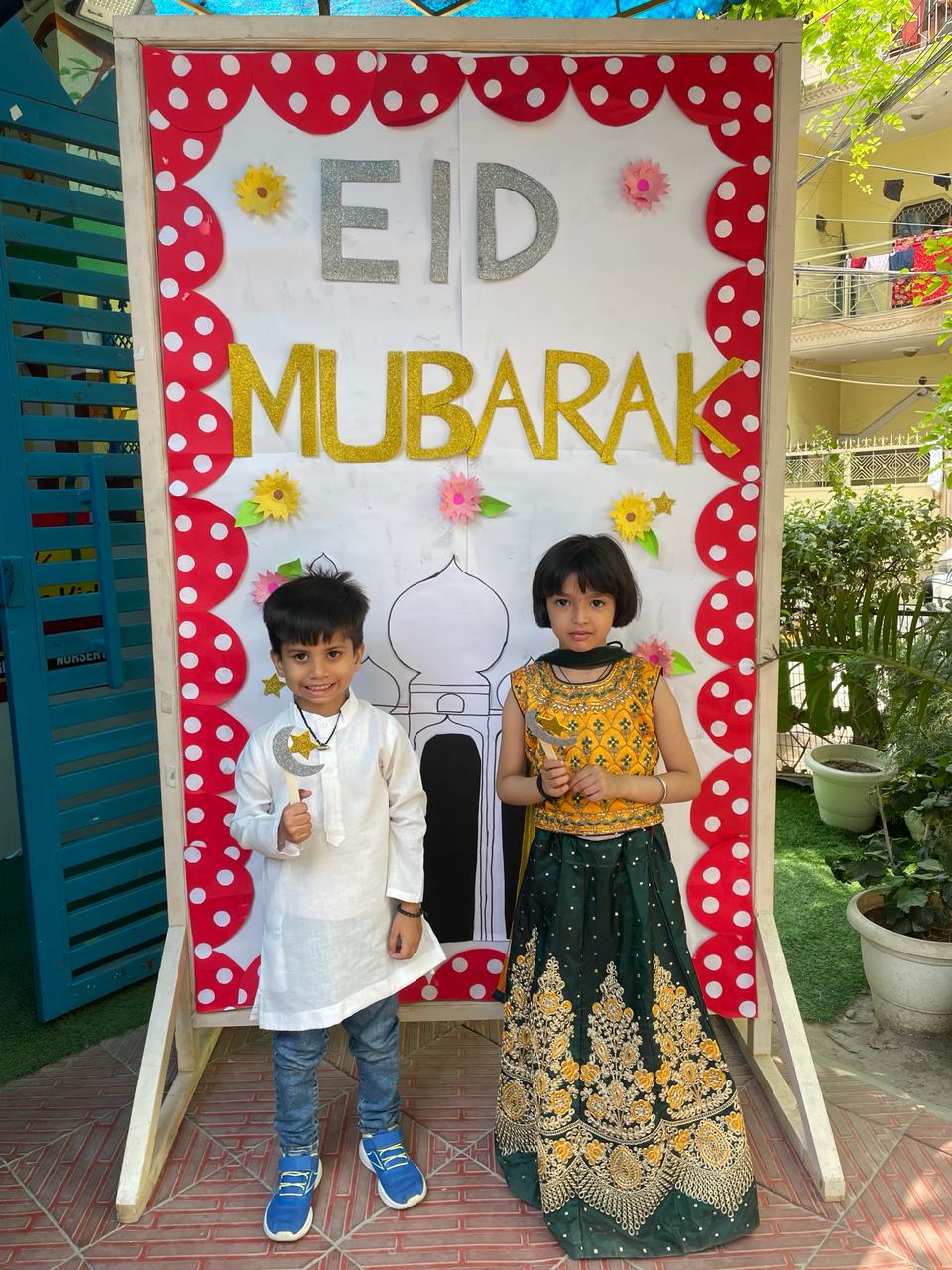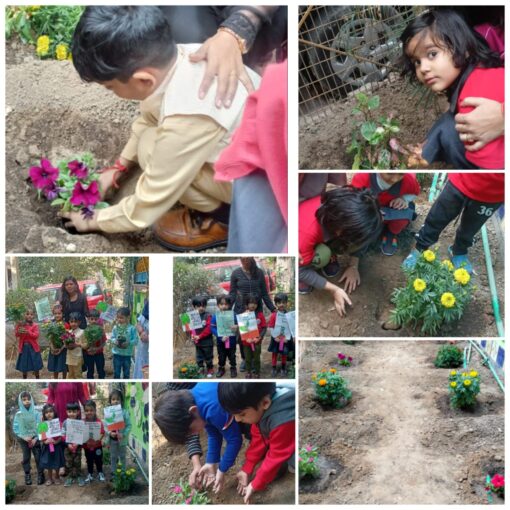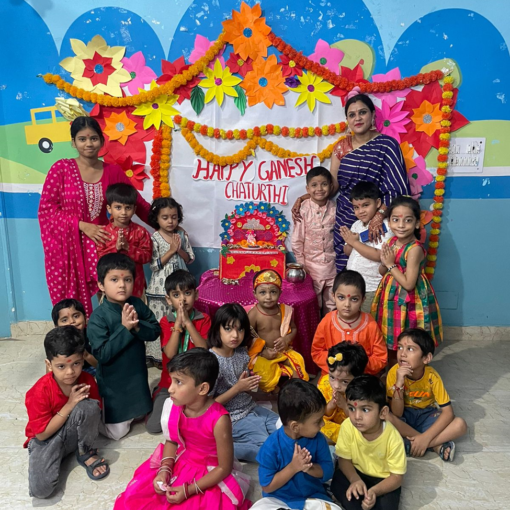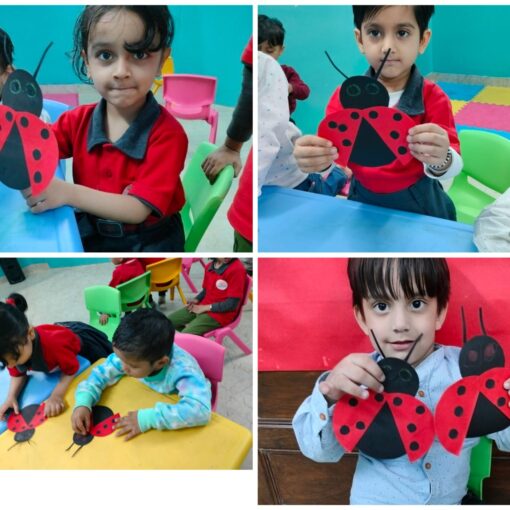
Eid al-Fitr, also known as the “Festival of Breaking the Fast,”. It holds immense significance in Islam as it marks the conclusion of Ramadan, the sacred month of fasting. This global celebration brings Muslims together in prayer, reflection, and gratitude.
Best Preschool in Dwarka– https://udayankidz.com/
Importance of Preschool Education in Early Childhood
Know all about Eid al-Fitr
Significance of Eid al-Fitr in Islam:
Eid al-Fitr symbolizes the culmination of Ramadan. It is a period of fasting and spiritual growth, serving as a time for joy and thanksgiving among Muslims worldwide.
Preparation for Eid al-Fitr:
Preparation for Eid al-Fitr involves completing the fast of Ramadan, engaging in additional acts of worship, and giving to charity to ensure all can partake in the festivities.
Role of Charity during Eid al-Fitr:
Charity, known as zakat al-Fitr, is a mandatory practice before the Eid prayer, providing essentials to those in need, and fostering inclusivity and compassion.
Celebrating Eid al–Fitr:
Muslims celebrate Eid al-Fitr by attending special prayers, wearing new dresses, exchanging gifts, sharing meals with loved ones, and engaging in acts of kindness.
Spiritual Lessons from Ramadan and Eid al–Fitr:
Ramadan and Eid al-Fitr instill vital values like self-discipline, empathy, gratitude, and community solidarity, enriching the spiritual journey.
Promoting Unity through Eid al-Fitr:
Eid al-Fitr brings together Muslims of diverse backgrounds, fostering unity, brotherhood, and sisterhood through prayer, celebration, and charity.
Traditional Foods Associated with Eid al-Fitr:
While traditional foods vary, delights like baklava, dates, biryani, and kebabs often grace the Eid al-Fitr table, symbolizing abundance and festivity.
Participation of Children in Eid al-Fitr Celebrations:
Children partake in Eid al-Fitr by receiving gifts, wearing new clothes, attending prayers with family, and enjoying special treats and activities.
Importance of Reflection during Ramadan and Eid al-Fitr:
Reflection allows Muslims to evaluate spiritual growth. And adherence to Islamic principles, and set goals for self-improvement in the coming year.
Extending the Spirit of Eid al-Fitr Beyond the Holiday:
The spirit of Eid al-Fitr endures by continuing acts of charity. It strengthens community bonds, fosters forgiveness, and strives for righteousness year-round.
Read out Udayan Kidz Eid celebration Blog-
By understanding the significance, traditions, and spiritual essence of Eid al-Fitr, one can embrace its message of unity, compassion, and gratitude, enriching both individual lives and communal bonds.
Importance of having Community Birthday Celebrations
What is Eid al-Fitr, and why is it celebrated?
Eid al-Fitr, also known as the “Festival of Breaking the Fast,” is celebrated to mark the end of Ramadan, the Islamic holy month of fasting. It is a time for Muslims to come together in prayer, reflection, and gratitude.
What is the significance of charity during Eid al-Fitr?
Charity, known as zakat al-Fitr, is a mandatory act for Muslims to give before the Eid prayer. It ensures that those in need can also celebrate the festival by providing them with food and other essentials.
How do Muslims prepare for Eid al-Fitr?
Muslims prepare for Eid al-Fitr by completing the fasting of Ramadan, engaging in extra acts of worship such as increased prayer and Quran recitation, and giving to charity.
How do Muslims celebrate Eid al-Fitr?
Muslims celebrate Eid al-Fitr by attending special prayers at the mosque, wearing new clothes, exchanging gifts, sharing meals with family and friends, and engaging in acts of kindness and generosity.
What are some spiritual lessons learned during Ramadan and Eid al-Fitr?
Ramadan and Eid al-Fitr teach Muslims the importance of self-discipline, compassion, empathy, gratitude, and community solidarity.
How does Eid al-Fitr promote unity among Muslims?
Eid al-Fitr brings Muslims from diverse backgrounds together in prayer, celebration, and charity, fostering a sense of unity, brotherhood, and sisterhood within the community.
What are some traditional foods and dishes associated with Eid al-Fitr?
Traditional foods for Eid al-Fitr vary across different cultures but may include sweets like baklava, dates, and savory dishes such as biryani or kebabs.
How do children participate in Eid al-Fitr celebrations?
Children participate in Eid al-Fitr by receiving gifts, wearing new clothes, attending prayers with their families, and enjoying special treats and activities.





One thought on “Eid al-Fitr: Significance, Celebrations, and Spiritual Reflection”